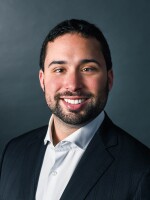The Army says it's taking "immediate action" to implement President Donald Trump's decision to restore the traditional names of seven bases.
The names were initially changed in 2023, after Congress banned base names that referred to the Confederacy or anyone who served in it.
The Trump Administration found a way to sidestep the law.
"They found some people with similar names so they could work around it," said Lawrence Romo, a member of the Base Naming Commission.
Congress formed the commission in 2021 in the wake of widespread protest over social injustice that brought attention to Confederate monuments and namesakes.
Among the commission's recommendations was to change Fort Hood, Texas - originally named for Confederate General John Bell Hood - to Fort Cavazos, in honor of the Army's first Latino four star general, Richard Cavazos.
While it would be illegal under federal law to rename the base once again after John Bell Hood, the Administration says the base now will be named for World War I Colonel Robert B. Hood.
"There was no movement to rename the base. Nobody ever told me that they want to rename it back to Fort Hood," Romo said. "I can't think of a single person that has told me we should rename it back to Fort Hood."
Romo said the commission's work was based on local community input and merit. There were no diversity requirements in its final recommendations.
Cavazos - a recipient of the Distinguished Service Cross and a Medal of Honor for heroism in Korea and Vietnam - is part of a storied Texas family. To them, the name change is an insult.
"I think it's a really backhanded way to change the name from Cavazos to Hood for someone that didn't have the same level of achievements and bravery," said
Ramiro Cavazos, a cousin of Richard Cavazos.
He says his family wasn't consulted in the process – two years after the Army held a celebration for them.
"I was there two years ago, and we had over 150 Cavazos family members there, many of them who have served our country," Ramiro Cavazos said. "And to do this in this manner is just really very mean spirited, but we'll continue to move forward and be proud Americans and hope for a better day in the future."
The Pentagon did not respond to an interview request, but President Trump explained his decision during a speech at Fort Bragg, North Carolina - which along with Fort Benning, Georgia was already renamed earlier this year.
"We won a lot of battles out of those forts. It's no time to change," Trump said. "And I'm superstitious, you know, I like to keep it going, right? I'm very superstitious."

Fort Bragg was originally named for Confederate General Braxton Bragg. In 2023, it was renamed Fort Liberty. But in February, Defense Secretary Pete Hegseth issued a memorandum changing the namesake again, this time to World War II paratrooper Roland L. Bragg.
In April, Fort Benning - which had been rechristened Fort Moore in 2023 - was returned to its original name, now honoring World War I Corporal Fred G. Benning.
Similarly, an Army statement said the rest of the bases will be changed back to their original names, but with different namesakes:
- Fort Pickett, Virginia (formerly Fort Barfoot) for World War II Distinguished Service Cross recipient Lieutenant Vernon W. Pickett.
- Fort Gordon, Georgia (formerly Fort Eisenhower) for Medal of Honor recipient Master Sargent Gary I. Gordon, who fought in the 1993 Battle of Mogadishu, Somalia.
- Fort Polk, Louisiana (formerly Fort Johnson) for World War II Silver Star recipient Gen. James H. Polk.
- Fort Rucker, Alabama (formerly Fort Novosel) for World War I Distinguished Service Cross recipient Captain Edward W. Rucker.
- Fort Anderson-Pinn-Hill (formerly Fort A.P. Hill and Fort Walker) for Civil War Medal of Honor recipients Lt. Col. Edward Hill, 1st Sgt. Robert A. Pinn and Pvt. Bruce Anderson.
In announcing the name restorations during the Fort Bragg speech, Trump said that Fort Lee, Virginia, would once again be known as "Fort Robert E. Lee." But the Army statement said the base (formerly Fort Gregg-Adams) will be named in honor of Spanish-American War Medal of Honor recipient Private Fitz Lee.
Rivka Maizlish, a senior research analyst with the Southern Poverty Law Center, said she wasn't surprised by the move – and that it fits into a pattern.
"I always say, like, what other country has military bases named after people who made war against it?" she asked. "But there's a history there, and it's a history of a propaganda campaign to erase the true history of the Civil War and establish white supremacy through other means."
Maizlish says she doesn't want to denigrate the people with the same last names as the Confederate generals, but she questions if the new base names really honor them.
"I think it's insulting to the names of the people who have no association with traitors or white supremacists that now their name is being used to recall the memory of traitors and white supremacists," she said.
In a statement, the Army said it will "take all necessary actions to change the names of seven Army installations in honor of heroic soldiers who served in conflicts ranging from the Civil War to the Battle of Mogadishu."
This story was produced by The American Homefront Project, a public media collaboration that reports on American military life and veterans.
Copyright 2025 American Homefront Project


